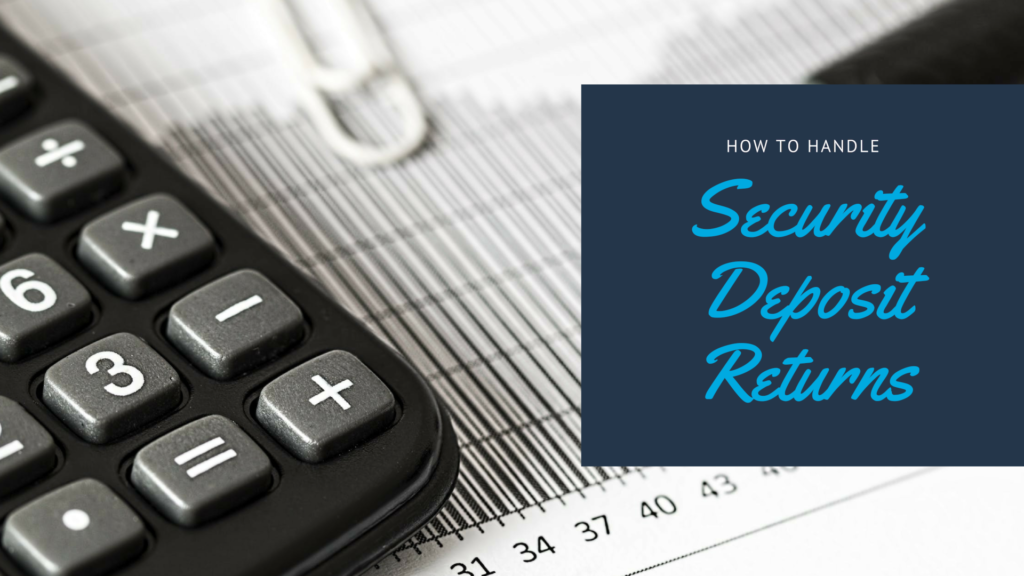
Do you have questions about security deposit returns? We can help.
A security deposit is paid by the tenant to the landlord at the beginning of a lease period. California law allows you to charge a security deposit that’s the equivalent of two months’ rent on an unfurnished rental home. The limit for a furnished home is three times the monthly rent. While the landlord or the Chula Vista property manager holds this deposit during the lease period, it’s still the tenant’s money, and it cannot be spent until the tenant has moved out and the accounting completed.
Security deposit returns can cause conflict if your tenants don’t know what you expect the property to look like at the end of a lease. Today, we’re discussing how you should handle the security deposit return. It’s important that you know and follow the law.
Share Your Expectations with Tenants
Once you receive your tenant’s notice to vacate, provide a written list of instructions and requirements for move-out. You can require that the property be professionally cleaned. If you have carpets, you can require that they are steam-cleaned. All of the requirements should also be included in your lease so your tenants will know about them ahead of time. Offer your tenants an opportunity to walk through the property before they move out, so you can point out areas that might inspire a security deposit deduction. This advance notice will give your tenants an opportunity to take care of the matter and avoid penalty.
Timeline for Security Deposit Returns
California law requires you to return your tenant’s security deposit within 21 days of the tenant moving out. Unless the tenant has left the property in a condition that’s exactly the same as the condition it was in at move-in, you’re probably going to make some deductions. In addition to returning all or part of the deposit within 21 days, you also need to provide an itemized accounting statement that shows where and why deductions were made. Copies of receipts or invoices for work should also be included.
Property Damage and Wear and Tear
Tenants are not to be charged for wear and tear, but you can charge them for damage. You can also charge for cleaning fees if the property was not cleaned before they vacated. If keys or garage door openers were lost, you can use the security deposit to pay for replacing those. The security deposit can also be used for overdue rent, unpaid late fees, or outstanding utility bills.
Security Deposit Penalties for Landlords
 If you violate any part of the security deposit law, you will face expensive fees and costs. If you keep the money without explanation or you don’t return it within 21 days, the tenant can take you to court. Not only will you have to return the full security deposit; you’ll also face punitive damages that may equal three times the amount of the original deposit. Don’t let yourself make a security deposit mistake because it will be costly and time-consuming.
If you violate any part of the security deposit law, you will face expensive fees and costs. If you keep the money without explanation or you don’t return it within 21 days, the tenant can take you to court. Not only will you have to return the full security deposit; you’ll also face punitive damages that may equal three times the amount of the original deposit. Don’t let yourself make a security deposit mistake because it will be costly and time-consuming.
Security deposits can be tricky, even for experienced landlords. If you have any questions or need any help, please contact us at Encore Realty.
